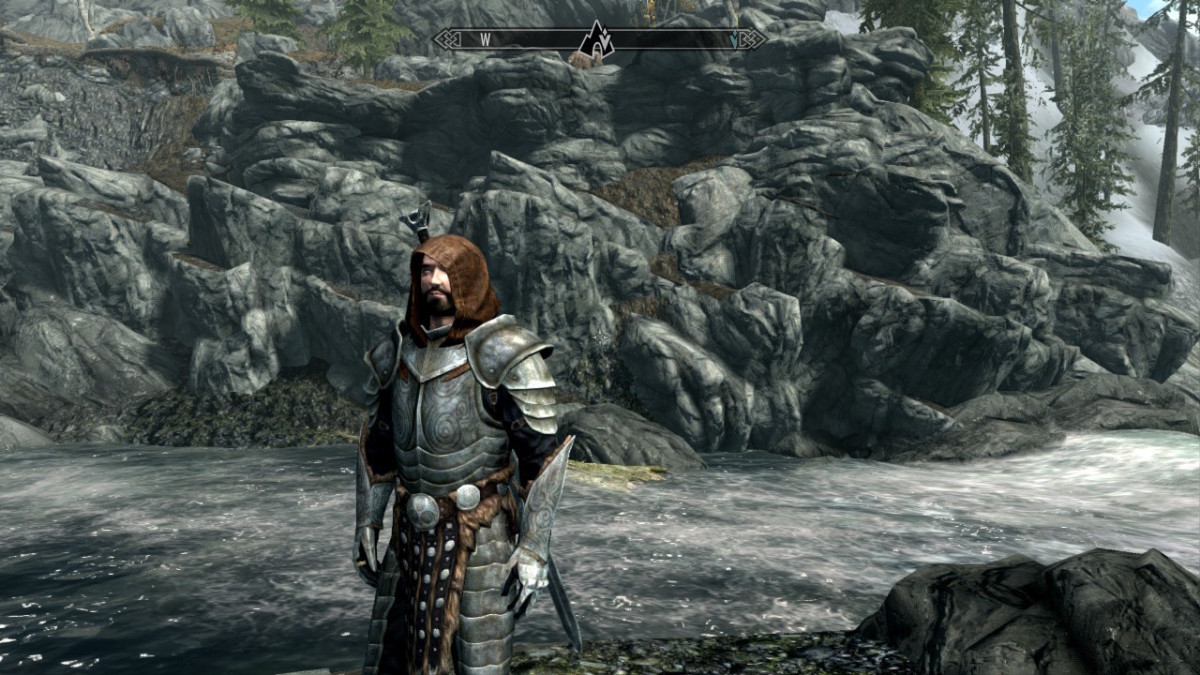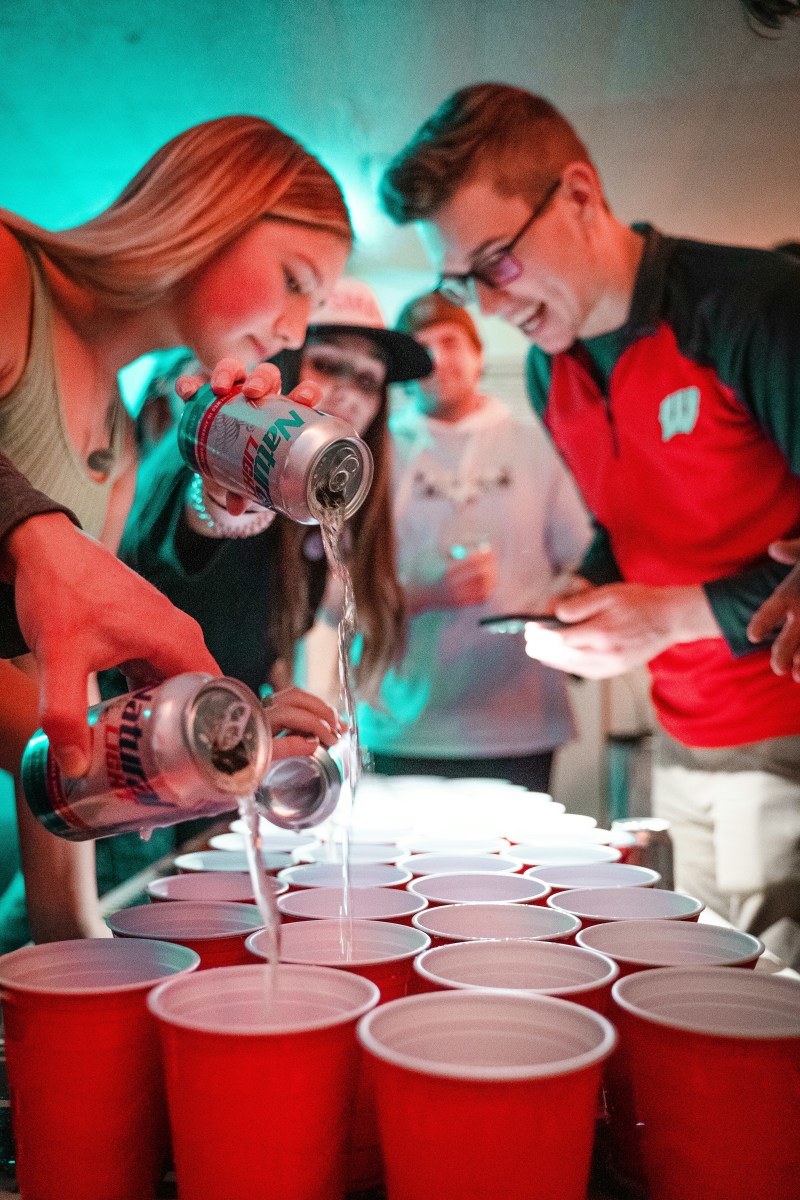Tim Arnold's Pinball Hall of Fame in Las Vegas, Worth the Visit
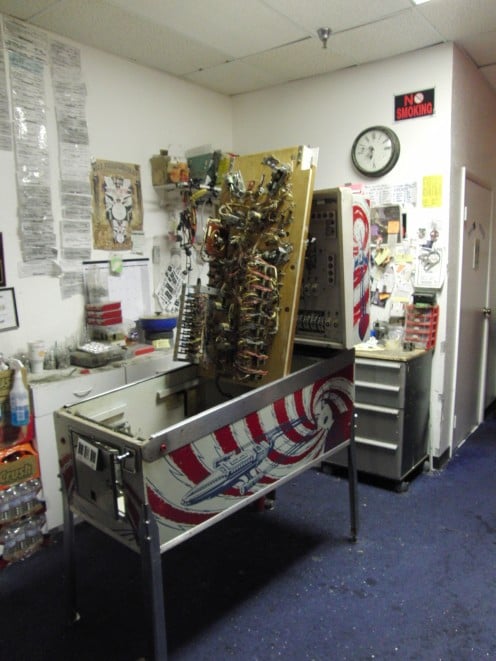
Pinball Hall of Fame and AMOA Pics, 2009.
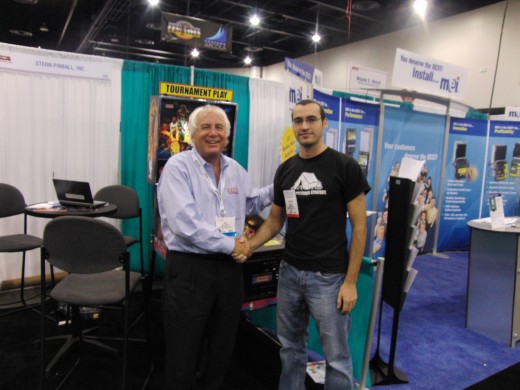
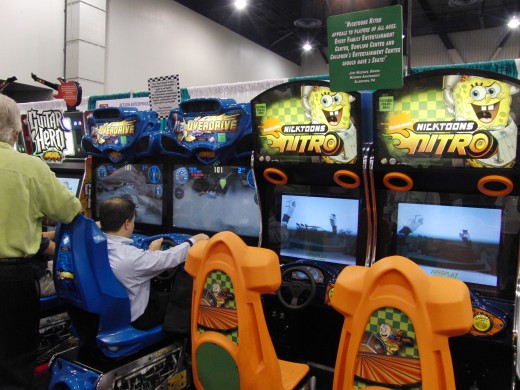
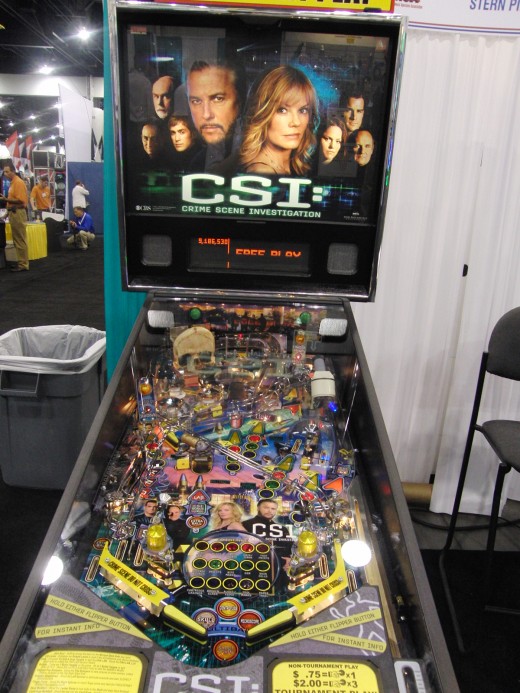
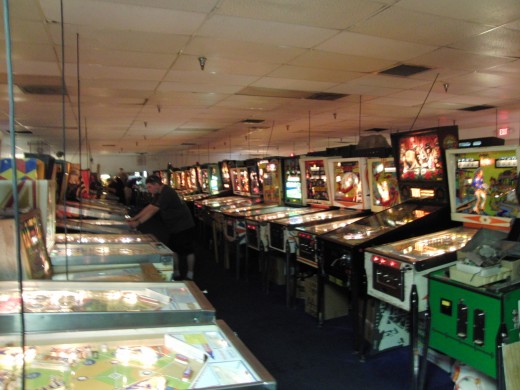
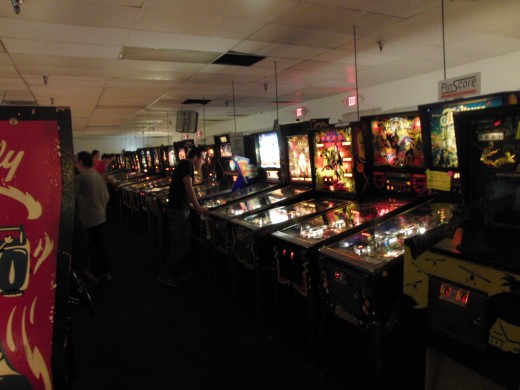
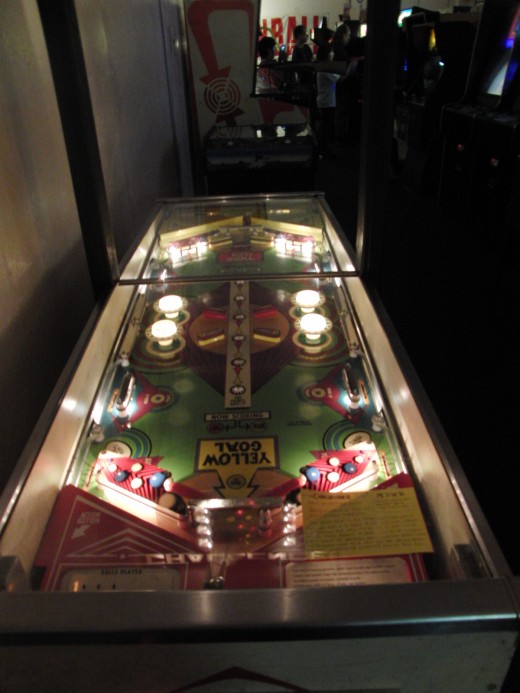
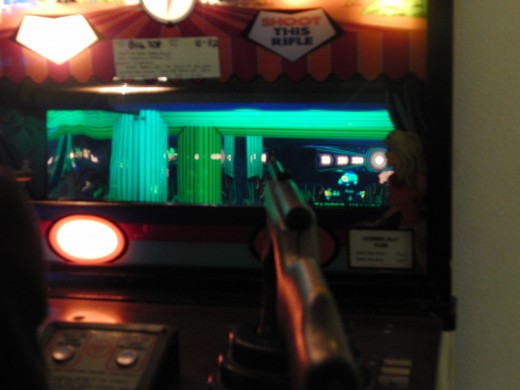
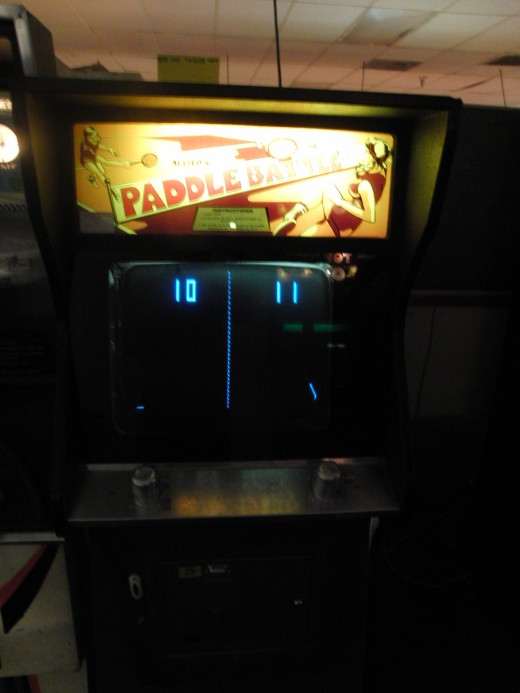
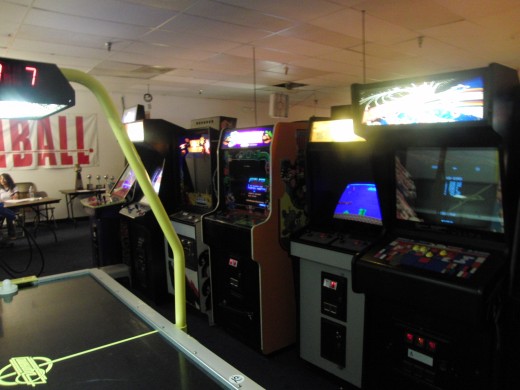
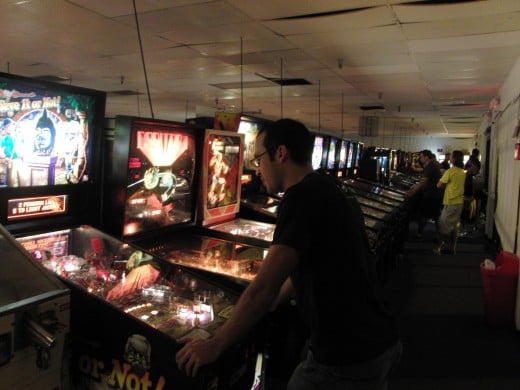
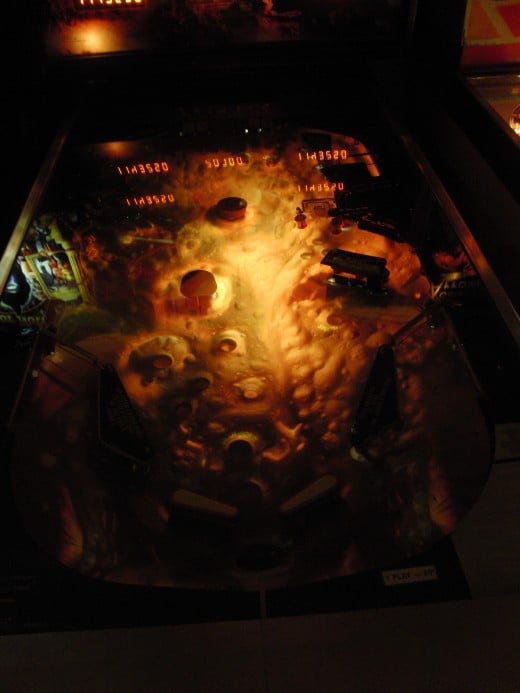
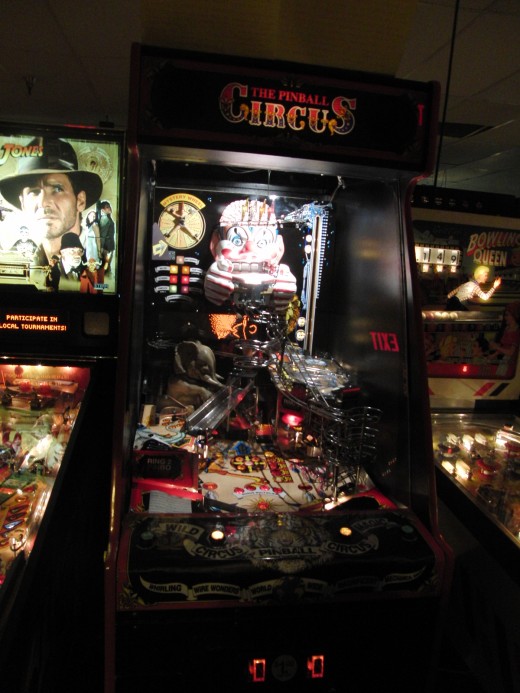
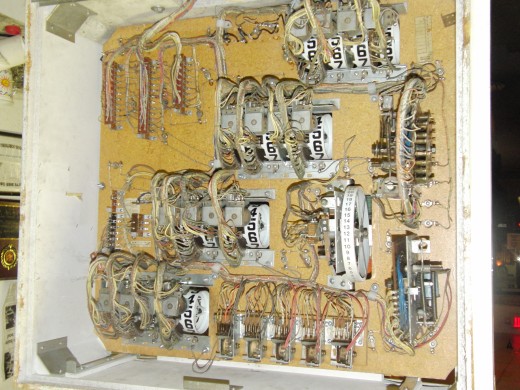
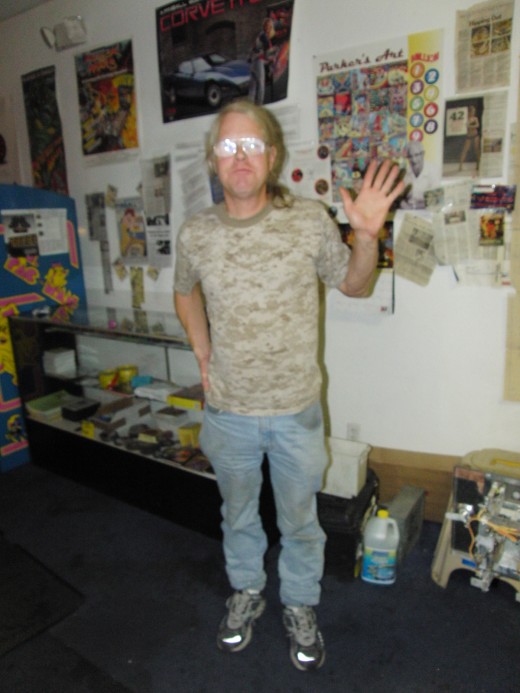
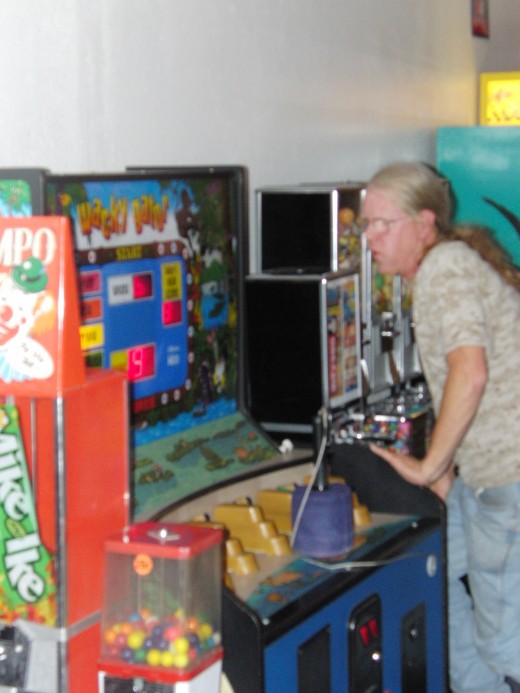
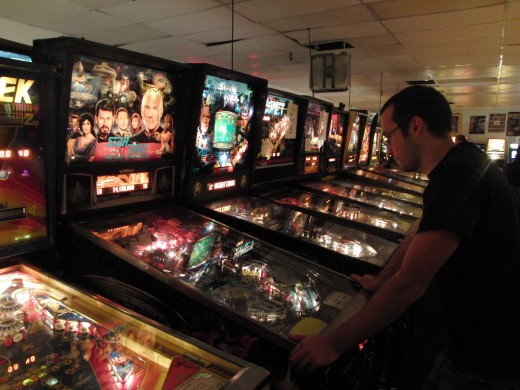
Some Pinball Stuff from Amazon.
Pinball Hall of Fame, Las Vegas
Tim Arnold stands next to an open pinball machine. The glass is off, the playfield flipped up so that the components are exposed; the back is open showing the scoring reels. If you peer down into the game you can see the chimes. Behind him is a wall of photocopied checks made out to the Salvation Army. To their left, the wall is cluttered with papers of all sizes and descriptions; some are articles that ran in newspapers and magazines, but the majority are notes sent by his customers.
You see, Tim has a one-of-a-kind enterprise (if enterprise it is): he operates the Pinball Hall of Fame in Las Vegas, NV. In today’s world of HDTV and home video games the concept of, well, basically a ball bearing careening around a wooden deck seems quaint. Most of us can sing the lyrics to a song or two from The Who’s Tommy, presumably Pinball Wizard. We know that, “that deaf, dumb, and blind kid sure plays a mean pinball.”
The question now is where does he play it? Local arcades are a thing of the past. The rows of Pac-Man, Space Invaders, or Asteroids machines crammed side by side with a long line of hot Bally, Gottleib, or Stern pinballs are long gone. They’ve been replaced by huge banks of Skee Balls and other ticket spitting games. Arcades have moved from a way to while away the hours to, as Mr. Arnold puts it, “gambling games for 12 year olds.”
If your local kiddy arcade does happen to have a pinball it’s probably in need of some work. They bought it new and it’s been sitting there for years. The playfield’s so black that you can’t tell whether that’s Gandalf, Spiderman, or Elvis on the playfield. The rubber’s so old and dried out that the ball wouldn’t bounce even if the pop bumpers were working correctly. If you put your money in the game before you saw how bad it looked, you didn’t put drop any more quarters in for a second game.
Behind that open pinball at the corner of Tim’s place there are several tool boxes, bags of pinball rubbers, bins of solenoids and other mechanical parts, and thousands of light bulbs. You see, this is not your normal place. There are two factors at work here. First, everyone who works here is a volunteer. Second, everyone who works here is insane. At least, to most of us they’re insane.
Tim operated a standard pinball and video game route, comprised of arcades full of the types of games that are highly collected now, back in the 70s and 80s. When new games came out, he bought more. But he kept all of his old games, ‘cause back then nobody wanted the old games, only the new ones. His local distributor would only give $50 trade in on a pinball, so Tim figured he was better off keeping the old games. After he collected his quarters and passed go, he moved from Michigan to Vegas and brought all of his left over games with him.
That would be about 1,000 pinballs. Tim stored them at his new house; some inside, some outside. Vegas’s climate is dry enough that if you keep the sun off of the games, there isn’t a lot of difference between keeping the games inside or outside. As the years rolled by, he would visit the coin-op trade shows as they came to town, invite people out to his place and have Fun Nights where his old coin-op buddies could come socialize and play pinball. The Fun Nights were well attended and became something of a local tradition, but with all good (and free) things, began to get a little out of hand. He’d have a thousand or so of his best friends, and their friends, and their friend’s friends, and some guy they saw at the corner, and…well, you get the picture.
Everybody would show up to play. Nothing belonged to anybody and things started to get broken, stolen, looted, damaged, and all-in-all it went from being something fun to a chore. Tim shut the Fun Nights down and settled back to the quiet life.
But all those pinball machines he kept tripping over nagged at him. He knew there was a demand to play them; he knew there was a growing demand to own them, but he was done with the business. He made his share; it was time for someone else to make theirs. But those games kept bothering him.
And then he hit on a unique combination of ideas: if you pay for something it’s more valuable was the first. The second can be summed up as, if you don’t need it, give it to someone who does. He did a little research and learned that the ones who really seemed like they needed it in Vegas was the Salvation Army.
While bell ringing, drum-playing guys in suits that are a cross between bell hop and major-general handing cups of soup to bums is what comes to most people’s minds when they think of the Salvation Army, Tim says that isn’t the case. Rehabilitation, counseling, and vocational training—turning those soup swilling bums into people instead of statistics is what Tim sees as the Salvation Army’s important work.
It is work that he understands the need for, but which he doesn’t think he could do. “They have a 65% drop out rate” for their rehabilitation program. Most of the permanent staff works for a pittance. And he checked into it to know where the money went. He asked for the group’s financial statements, looked at them, and saw that the money they received went to their programs. The people there aren’t getting rich, most of ‘em are making minimum wage. And that’s the picture from the bottom to the top of the organization.
Tim found his charity, the Salvation Army. He found his means to contribute to it, pinball games. He just needed to find a way to make it work. A room full of games probably wouldn’t help the Salvation Army much. Everyone could play a few games, but all the electricity burned would make it a net loss for the group, entertainment value aside.
So Tim’s experience with his Fun Nights came into play: host charity events. Folks come in, play the games, and the money goes to the Salvation Army. It worked, but he wanted something more. Perhaps he was bored, perhaps he felt that he’d been retired long enough and it was time to get back to work.
The Pinball Hall of Fame was born. It didn’t spring forth from his mind fully formed. It took a lot of hard work, patience, and dedication to make it happen. If you’ve ever had to get a permit from a government agency for any reason, think about this one for a second: he has a pinball arcade, operated as a non-profit organization, but it looks like a good old-fashioned arcade to the unwary. Rows upon rows of pinballs (and a few classic games), change machines, vending machines, and…well, it doesn’t look like what a non-profit should look like. It looks like a business.
It took a fair amount of fast talking to convince the state and local authorities that govern coin-operated games that he didn’t need all of the taxation and regulation that normally goes along with operating games. Every added expense is that much less money in the coffers of the Salvation Army. Even with his persuasive skills, it can get expensive. The Hall of Fame has been operating for the past few years in a strip mall. The space is leased and every quarter spent on rent is one less quarter that can go to the Salvation Army. Tim decided that the best option was to buy a building and move. It would serve a few purposes. First, while he’s got over 150 games at the current location, it’s a fraction of what could be there. Second, the new building itself will be a tangible good to give to the Salvation Army when it comes time to retire again. The money when the new building eventually sells would belong to the IRS or the Salvation Army. “I’d rather see the Salvation Army get it,” explained Tim.
The preparation of the new building, the move, and its related expenses has been a drain on the organization’s cash flow this year. Once the construction was completed, the building authorities decided he needed a bigger sprinkler system, another power transformer, and a new occupancy permit. All to the tune of $70,000, so far this year.
But once the move is completed, while expenses such as power and insurance will go up a bit, all of the money wasted on rent turns into an eventual donation. And, should sales continue at their current rate Tim says that, “we should be donating $20,000 to $30,000 a month to the Salvation Army.” Which will be a noticeable addition to the Salvation Army’s operating budget. He estimates that to date, the new building plus past donations means that they’ve raised about $1.5 million for the charity. His plan is to run the Hall of Fame for 10 years, “until I’m 62,” and then make a decision as to the Hall of Fame’s future.
It’s a bit hard to understand Tim’s motivation. When asked what his favorite game or games were, he laughed and said, “I don’t even play pinball much. I’d rather be at home with my dogs.” But his twin passions are fixing the games and helping the Salvation Army. Once he’s in the new digs, he hopes to be able to offer “Summer Camps” or vacations where you come to Vegas and spend a week fixing games for free at the Pinball Hall of Fame. “That’s my idea of a good vacation,” explains Tim. You also don’t have to worry about where the quarters are going, once the expenses are paid, it goes to the Salvation Army. He does his best to keep payroll at a minimum. His total payroll, including executive salaries, from the time of opening to his projected retirement in ten years? Zero. It’s all for the love of the game. Or the charity. Or something?
Next time you’re in Vegas, check it out. By the time you read this, he’ll be settled into his new location near the Liberace Museum at 1610 E. Tropicana in Las Vegas. You can also check it out online at www.pinballhall.com. It’ll be the most fun you can have while helping a good cause. And if you’re worried that it’s just a bunch of old junk, fear not. Tim’s driving force is making sure everything game works as well as it possibly can. If you have a problem, tell Tim and they’ll fix it. Immediately. Plus he has a standing order with his distributor to buy every new pinball when it comes out!
Note: This was written in the fall of 2009. Tom's been settled into the new location for a couple of years now.



